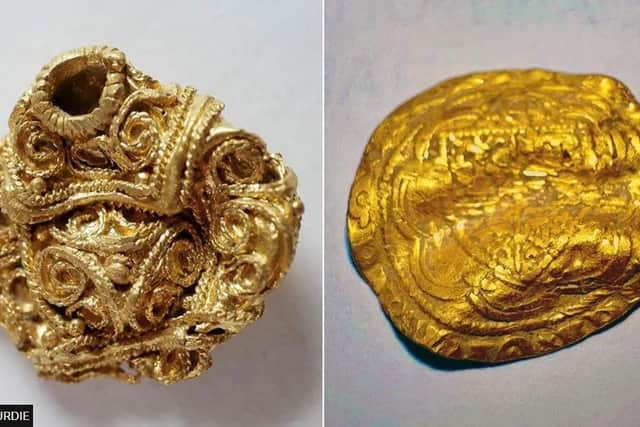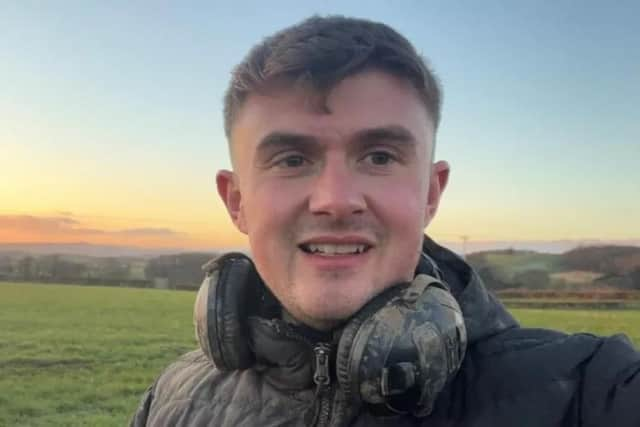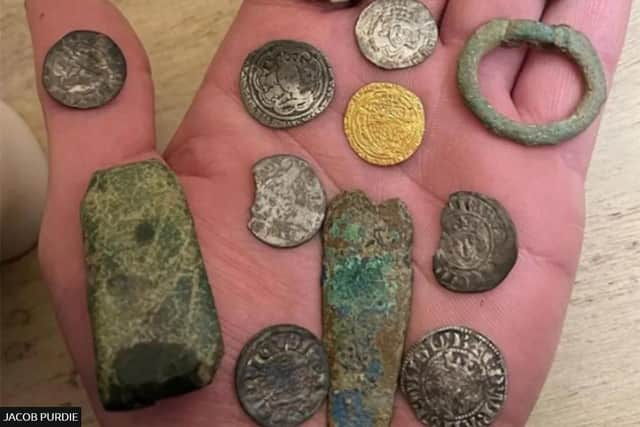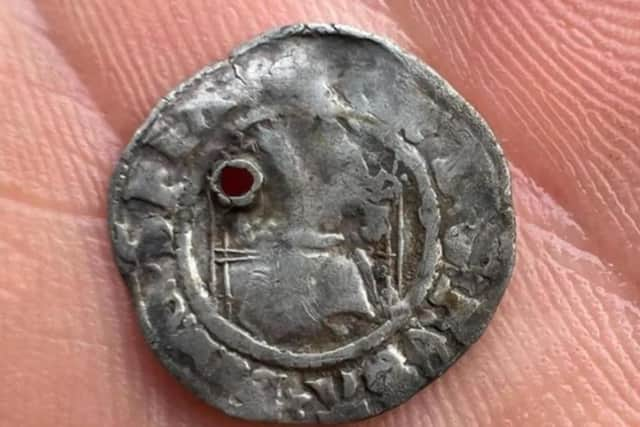Lancaster metal detectorist unearths treasure in farmer’s field
and live on Freeview channel 276
Jacob Purdie, from Lancaster, found the gold pin head in a field in Burton-in-Kendal in Cumbria while metal detecting last year.
It was ruled to be treasure by the county's coroner in December and is now awaiting valuation.
Advertisement
Hide AdAdvertisement
Hide AdMr Purdie, 30, said: "I put a lot of effort into my metal detecting. I take it very seriously and I love building my collection."


The Lancaster docks shipping agent was introduced to the hobby by a friend.
On his first attempt he found "two bullets and button" and now goes out every day after work.
In quick succession last year he discovered the filigree gold pin head and a quarter noble - a rare gold hammered coin.
Advertisement
Hide AdAdvertisement
Hide AdSingle gold coins, external do not count as treasure so Mr Purdie paid the landowner half its value and kept it.


The pin head is believed to date back to the 16th Century, external and, as it is gold and more than 300 years old, qualifies as treasure under the Treasure Act of 1996.
Mr Purdie said as soon as he saw it he knew it was very old.
"I just knew I had to declare it straight away - I declared it the same day," he said.
Advertisement
Hide AdAdvertisement
Hide AdThe Treasure Valuation Committee is now considering the find to determine a value and museums have been alerted in case they wish to buy it.


Mr Purdie said the pin head was a "rare find" but his motivation was not the money.
"It's just the history - I live for it," he said.
His mother is also interested in the history but his father is always curious to know the value, he said.
"It makes absolutely no odds to me how much things are worth.


Advertisement
Hide AdAdvertisement
Hide Ad"If I ever need the money I certainly won't be selling my collection."
What to do with old finds:
*Work out whether it could be treasure, external
*Report potential treasure to the local coroner within 14 days, external of finding it, or of realising it might be treasure
*Other items can be reported to the Portable Antiquities Scheme, external